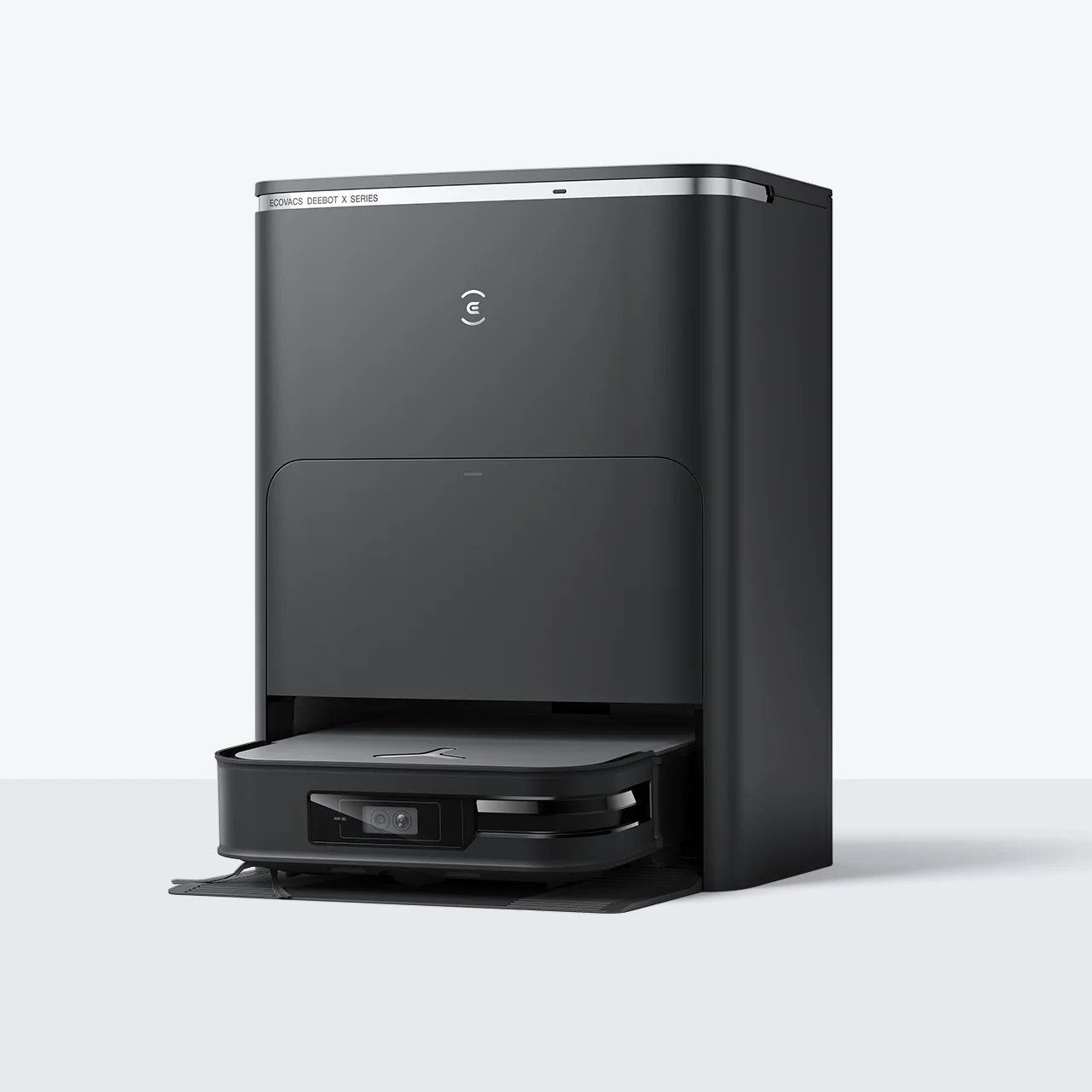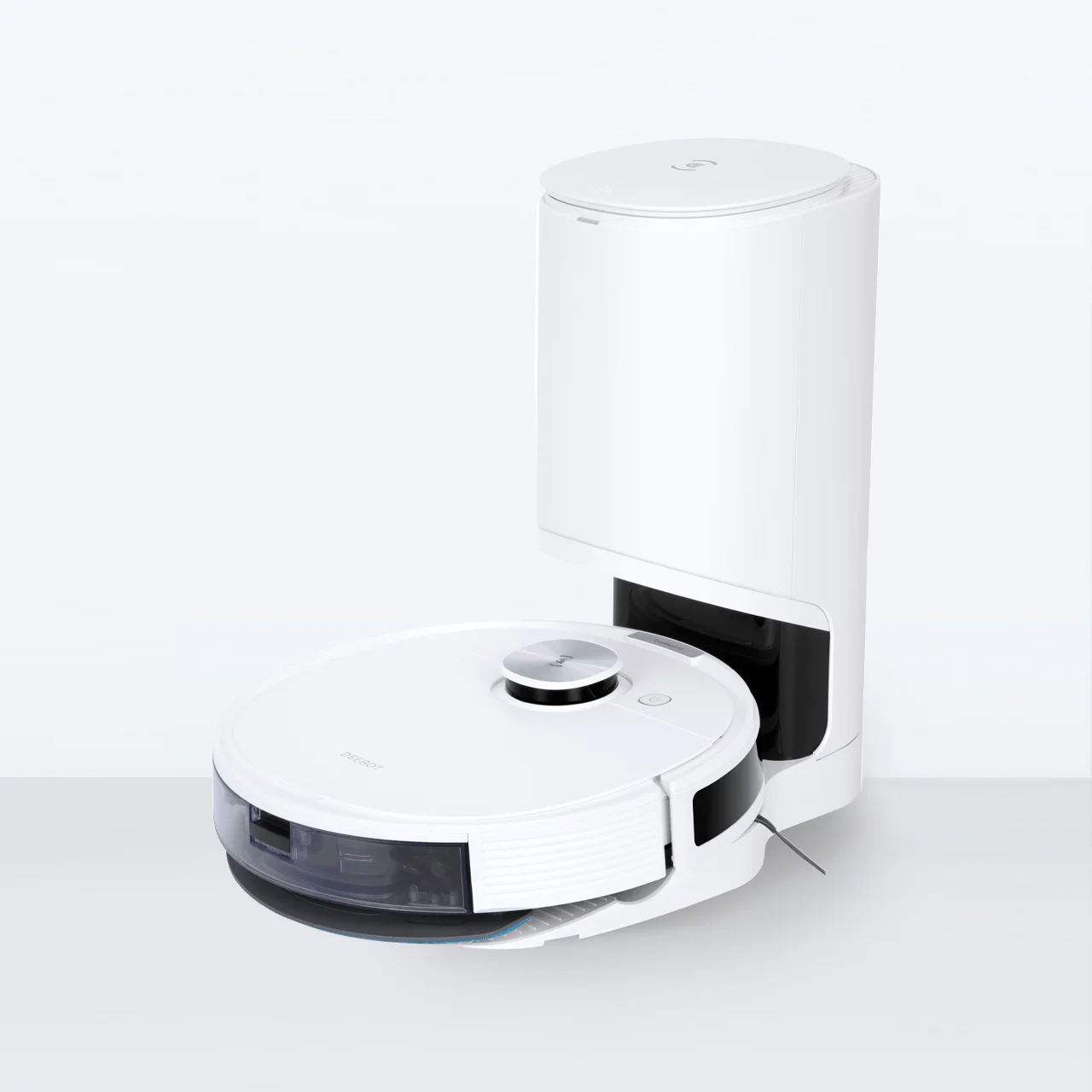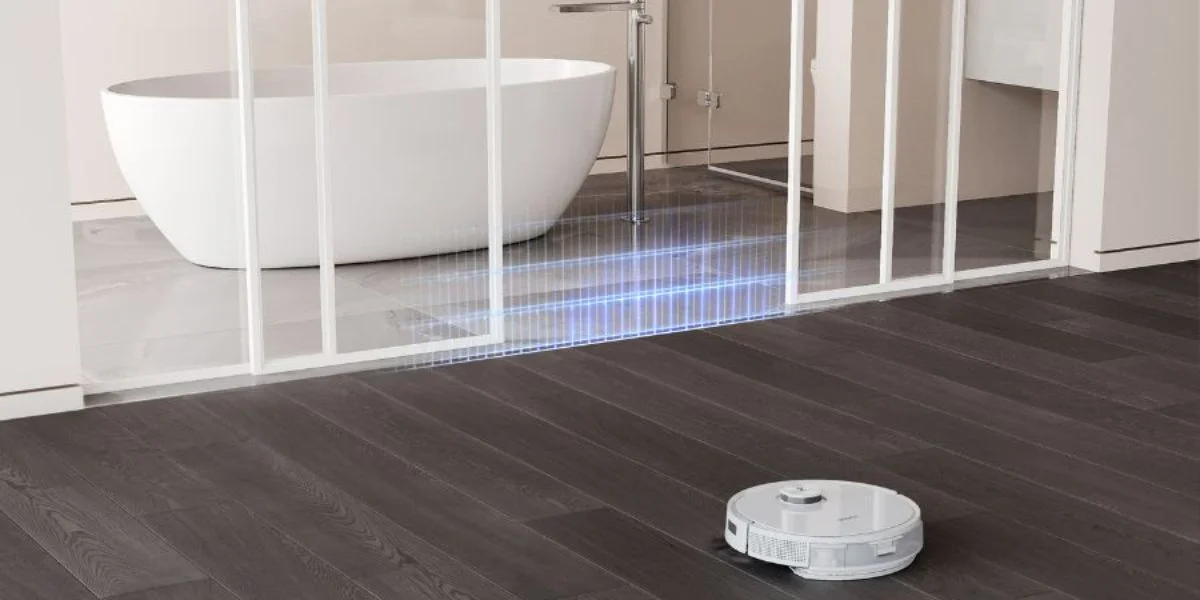
Robotic vacuum cleaners are gaining popularity in modern homes for their proficiency and efficiency in house cleaning. According to Statista, the revenue in the smart appliances market — which includes robot vacuum cleaners — is projected to reach AU$2.2 billion in 2024, with an annual growth rate of 10.46% resulting in a projected market volume of AU$3.3 billion by 2028.
The lifespan of these devices depends on usage, maintenance, the model of the device, and importantly — the type of battery. The battery is the heart of a robot vacuum, and its longevity directly impacts the appliance’s efficiency and effectiveness in keeping your home clean. Most robot vacuums require battery replacement after 2–5 years of regular use, depending on the type of battery your smart vacuum uses. Knowing how long the battery lasts, what factors affect its lifespan, and how to properly maintain it ensures that your automatic vacuum can perform at its best for as long as possible.
What Affects Robot Vacuum Cleaner Battery Life?
The battery life of robot vacuums depends on various factors, such as the device’s battery capacity, working environment, and usage patterns. Understanding the factors that influence the health of the battery helps you know how to extend its life span and improve its working efficiency in performing cleaning tasks.
Battery Capacity and Technology
The battery capacity and technology used in robotic vacuum cleaners play a crucial role in determining the cleaning performance and runtime of the device. The battery capacity may vary between different models and brands of robotic vacuums. Older models of smart vacuums used nickel-metal hydride batteries, which have slower charging times, shorter lifespans with fewer charge cycles, and can have diminished life with partial charging. ECOVACS DEEBOTs use lithium-ion batteries, which are known for their high-energy density, long cycle life, and quick charging capabilities, which can be cost-effective in the long run.
Usage Patterns and Cleaning Modes
A smart vacuum’s battery health can be influenced by the frequency of use and workload of your robots. Working on a daily basis may shorten the battery life. The cleaning mode you choose can impact battery longevity as well. Using a higher suction power setting or a deep-cleaning mode that involves more intense cleaning actions may consume more battery power, leading to a shorter runtime. Users of ECOVACS DEEBOTs can choose among several cleaning modes that are developed for different flooring materials and cleaning effects using the ECOVACS Home App.
Cleaning Environment
Homes with carpets, especially the high-pile variety, require more energy than hardwood floors due to increased suction needs. Larger living spaces consume more battery power due to longer cleaning times, while cluttered spaces force the vacuum to navigate around obstacles frequently, draining the battery faster. Heavily soiled areas demand more effort and energy, reducing battery life, while lightly soiled areas are less demanding. However, regular cleaning can conserve battery life by preventing dirt accumulation, making each session quicker and less power-intensive.
Charging Habits
Proper charging habits can prolong battery life, ensuring optimal performance and longevity. Regularly overcharging a smart vacuum’s battery can lead to the device overheating, thereby reducing its lifespan, so it’s best to unplug the device once it’s fully charged. Frequent partial charges are better than allowing the battery to fully deplete, as deep discharges can damage the battery and prevent your robot vacuum from charging. Long periods of inactivity can cause the appliance’s battery to degrade, so it’s better to use and charge the device regularly. Keep the charging contacts clean to ensure efficient energy transfer, which will prevent strain on the battery. When you set up your robot vacuum cleaner, leave enough space on either side of the docking station and in front of it so that the appliance can return to its base to charge without a problem.

Software Updates and Maintenance
Software updates often include optimisations for battery management, improving efficiency, and reducing unnecessary power consumption. Updates can also enhance navigation algorithms, allowing the vacuum to clean more effectively and quickly, thereby conserving battery life. Additionally, updates can fix bugs that cause excessive battery drain or charging issues. When your device runs the latest software, it will benefit from improved performance, longer cleaning sessions, and extended battery lifespan.
How to Extend Robot Vacuum Cleaner Battery Life?
Extending the battery life of your robot vacuum cleaner involves a combination of proper maintenance, smart usage habits, and mindful storage. Here are some practical tips to help you get the most out of your appliance’s battery:
● Regular maintenance: Clean the brushes and wheels at least once a week so they’re free of hair and debris. Clear the dustbin frequently or, if you have a self-emptying robot vacuum, remove the contents of the bin in the base station periodically. Wipe away dust and dirt from the sensors, and clean the smart vacuum filter every two weeks. Replace worn-out parts when necessary.
● Proper charging practices: Keep the charging contacts on both the device and the docking station clean. Allow the battery to charge fully before using the vacuum, and don’t leave the appliance on the charger for extended periods if it doesn’t have an overcharge protection feature.
● Smart usage habits: Pick up small items from the floor and clear away cords to help the machine clean more efficiently, and therefore use less battery power, or schedule cleaning routines when the house is less cluttered. Set up no-go zones to limit the cleaning area, which will reduce the time the device takes to work.
● Correct storage: High temperatures can damage the battery, so place your vacuum in a cool, dry place away from direct sunlight. Keep it on the charging dock or in its base station to make sure the battery remains charged and in good condition.
If you encounter any problems, read our troubleshooting guide, or contact our support if you're using an ECOVACS DEEBOT.
When to replace robot vacuum cleaner battery?
The typical lifespan of a robot vacuum battery is 2–3 years — depending on usage and the climate where you live —after which you may need to replace it. You should consult your user manual to find out the specific battery lifespan for your model, but there are signs you can look out for to understand when you need to change it. The most common indications of battery wear are reduced runtime, slow charging, and failure to hold a charge. Decline in suction power is another sign of advanced battery age, which results in longer cleaning times and less effective performance. Remember to follow the manufacturer’s instructions for installing a new battery in your smart vacuum, and to dispose of the old battery according to Australian Environmental Protection Authorities (EPA) guidelines.

FAQ
Should I leave my robot vacuum plugged in all the time?
Most modern robot vacuums can manage their battery health by automatically stopping the charge once full, ensuring the battery remains in good condition. The lifespan of a robot vacuum cleaner battery is 2–5 years, depending on whether they’re nickel-metal hydride (used in older models) or lithium-ion batteries (for more advanced models). Additionally, these devices can work for almost 300 minutes before they return to their docking stations, but some more basic bump-and-run models run for less time and need to be placed on their base when they run out of charge.
What is the best way to extend robot vacuum battery life?
To extend your smart vacuum battery life, clean the device regularly, follow optimal charging practices, store it properly, keep it updated with the latest software, and avoid overworking the battery by scheduling cleaning sessions wisely.
How do I choose a replacement battery for my robot vacuum cleaner?
Check the manufacturer’s recommended battery model, then match the voltage and capacity, and ensure the battery chemistry is compatible. Most importantly, make your purchase from a reputable seller. The replacement battery should also fit your vacuum’s battery compartment without a problem.
Related Products









